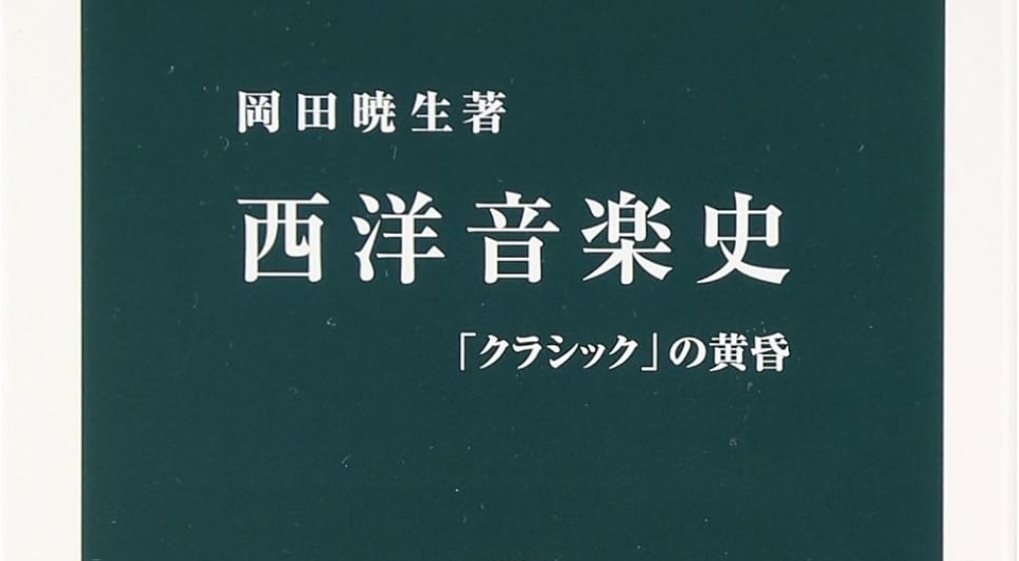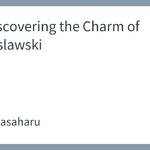(Original posted on November 28, 2008)
This is a wonderfully ambitious work. Among music history books that tend to pursue academic precision and correctness, or often stop at merely explaining historical figures, this book stands out. It approaches “Western (art) music” as “music recorded in scores,” and through this lens, boldly narrates the flow of music history by firmly contextualizing it within the social conditions, structures, and socio-cultural hierarchies of each era.
By considering these societal situations and regional characteristics, aspects such as the relationship with Enlightenment thought in Beethoven’s time, or the nature of (notated) music under absolute monarchies, emerge in a very three-dimensional way. While these are topics frequently touched upon in previous music history books, the power of this author as a singular narrator dynamically conveys the changes and continuities of the eras.
As the author states at the beginning, “I am not afraid to speak in the first person ‘I’,” a key feature of this book is the clarity of the author’s perspective. This is detailed in the preface and Chapter 1, and its fruition can be seen, for example, in Chapter 5, “The Greatness and Contradictions of Romantic Music.” Composers of this period were, so to speak, “a conglomeration of intense individualities,” and most music histories tend to become a “series of composer biographies,” often blurring the bird’s-eye view of the historical background, social trajectories of their activities, and their interrelations and continuities.
However, the author here cites the establishment of concerts and music criticism in the nineteenth century, the music conservatory system that took root during this era, and significant changes in the audience. By weaving these societal movements with regionality, he depicts musicians as they were tossed about by, catered to, or overcame these trends, bringing them to light as part of a larger flow of music history.
With Paris as its symbolic center, genres like opera, virtuoso music, and salon music flourished, leading to a form of “popularization.” Simultaneously, in German-speaking regions, “serious music” emerged against a backdrop of an emphasis on cultural refinement (Bildung), giving rise to a tendency to seek “depth and interiority” in music. This fifth chapter is particularly compelling, including the observation that the roots of the “entertainment music vs. art music” conflict lie in this era.
One drawback, however, is that the treatment of 20th-century popular music in the latter part of the book undeniably gives a strong impression of being self-serving. But this too might be a deliberate approach stemming from the author’s stance, and it is a fact that this approach makes the final assertions quite memorable.
This is an excellent book that allows you to experience the historical flow of where Western (art) music came from and where it went, and from where current music has streamed, truly like a “great river.” As the author says, it opens your eyes to “the joy of listening to music historically.”
More information about the book
Title (Japanese) :『西洋音楽史 「クラシック」の黄昏』
Author : Akeo Okada (Author)
ISBN : 4121018168
Table of Contents for ‘A History of Western Music: The Twilight of “Classicism”‘
- Preface
- Chapter 1: Enigmatic Medieval Music
- What is Art Music? / In the Beginning Was Gregorian Chant / On the Formation of the Western World / ‘Musica enchiriadis’—History Begins to Move Forward / The Development of Organum Art / The Notre Dame School and the Gothic Century / The Resounding Order of Numbers / Ars Nova and the Twilight of the Middle Ages
- Chapter 2: The Renaissance and the “Beginning” of Music
- Music Becomes “Beauty” / The Franco-Flemish School in the Fifteenth Century / About the Cantus Firmus / The Birth of the “Composer” / The Expanding Space of Music History and the Sixteenth Century / From the Franco-Flemish School to Italy / The Discovery of “Sound” and “Dissonance”—Towards the Baroque
- Chapter 3: Baroque—Déjà Vu and Discomfort
- The Intelligibility and Unintelligibility of Baroque Music / Music in the Age of Absolute Monarchy / The Birth of Opera—Music Becomes Drama / Monody and Basso Continuo / The Principle of the Concerto / Protestant German Music Culture—The Problem of Bach / My Personal View on Bach’s “Greatness”
- Chapter 4: Viennese Classicism and the Utopia of Enlightenment
- Music for Modern Citizens Begins Here / The Road to Viennese Classicism / Compositional Techniques of Classical Music / The Establishment of Public Space in Music / Symphonic Music and the Birth of a New Community / Sonata Form and the Spirit of Rhetoric / Mozart and Opera Buffa / Beethoven and the Future of “Enlightenment Music”
- Chapter 5: The Greatness and Contradictions of Romantic Music
- Nineteenth-Century Music—A Flourishing of “Individuality” / Criticism, Music Schools, Masterpieces / Bluff and Mass Tactics / Grand Opera and Salon Music—Musical Life in Paris / A Maiden’s Prayer / The Veneration of Instrumental Music and the Culture of Attentive Listening—The Case of Germany / Songs Without Words, Program Music, Absolute Music / The Birth of “Emotion” in Music
- Chapter 6: Ripeness and Collapse—From the Turn of the Century to World War I
- The Last Sparkle of Western Music History?—The Post-Wagnerian Era / The Rebirth of French Music / New Opportunities for Exoticism / Richard Strauss and the Mammoth Orchestra / Religious Music in a Godless Age—Mahler’s Symphonies / Transgression or Catastrophe?—The Eve of World War I
- Chapter 7: What Happened in the Twentieth Century?
- The End of World War I and the Break from Romanticism / The Denial of the Originality Myth—Stravinsky in the Neoclassical Era / A Prophet Crying in the Wilderness—Schoenberg’s Twelve-Tone Technique / The Difficult Task of Rebuilding “Form” / Is a “History of Contemporary Music” Possible?—A Glimpse into the Post-World War II Era / Avant-garde Music, Virtuoso Performances, Popular Music / The Gospel and Curse of Romanticism
- Afterword
- Bibliography Guide
About the Author
Akeo Okada
Born in Kyoto City in 1960. He withdrew from the doctoral program at Osaka University Graduate School after completing the required coursework. After serving as an assistant in the Faculty of Letters at Osaka University and an associate professor in the Faculty of Human Development at Kobe University, he became an associate professor at the Institute for Research in Humanities, Kyoto University. Doctor of Letters. His publications include ‘The Destiny of Opera’ (Chuko Shinsho, Suntory Prize for Social Sciences and Humanities).(Quoted from this book)


